20 Cheat Meal Tips for Weight Loss Success
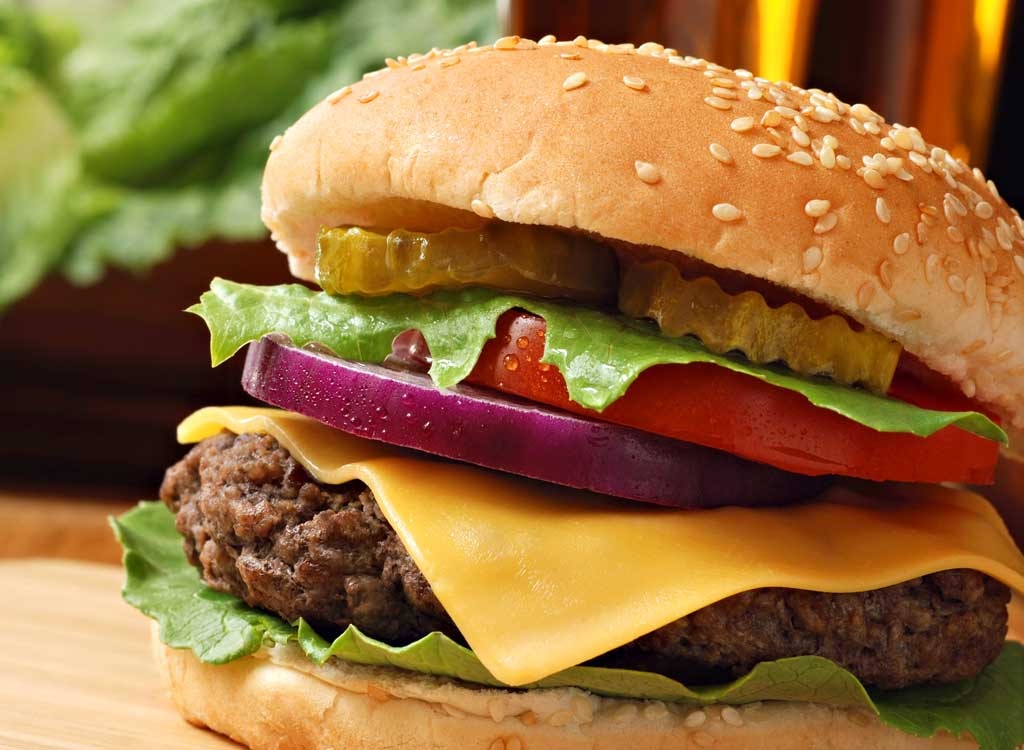
If there’s one hard and fast rule to remember about eating healthfully and for a flat belly, it’s that you don’t have to be “all or nothing.” Even the fittest, most nutritionally-conscious experts out there will admit that they indulge every once in awhile. Mark Langowski, celeb trainer and author of Eat This, Not That! For Abs admits that being imperfect is part of his perfect six-pack plan. “I like to treat myself once a week to something, whether it is a slice of pizza, a bite of dessert, or a handful of chocolate,” Langowski reveals.
When you’re on a diet plan or trying to stick to some sort of health regimen, this moment of indulgence is often called a “cheat meal.” But instead of just giving in to that bacon cheeseburger they most feel like it, many pros plan for a moment during their week when they will color, er, eat outside the lines they’ve drawn for themselves. But like any other part of a weight loss effort, whether it’s searching for healthy breakfast ideas or finding the right gym for you, approaching your cheat meals with a good strategy is important to your success! In fact, a recent January 2016 study by Australia’s University of New South Wales revealed that even three days of falling off the wagon and cheat mealing your way through the weekend can completely ruin your dieting efforts. Yikes! So, follow our expert advice for your cheat meals to watch the weight fall off—and then keep the momentum going with these 25 Ways to Cut 250 Calories.
Before You Cheat
View It As a Tool
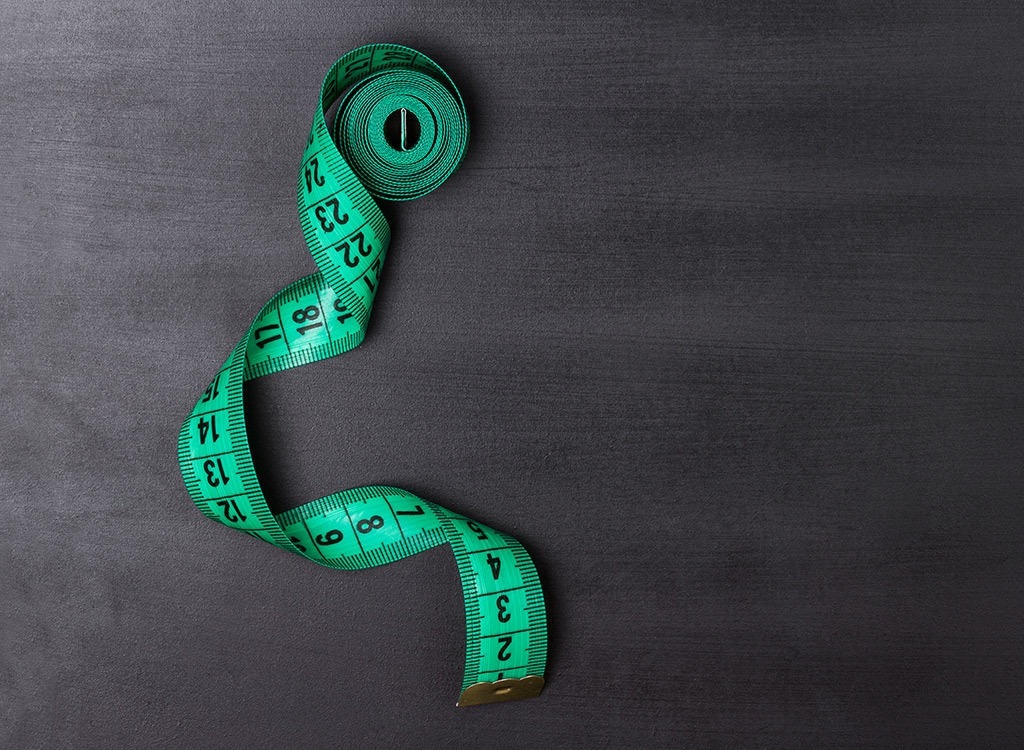
Expert tips and daily habits aren’t just things to keep in mind—they are legitimate tools you have to use in your weight loss journey, just like a scale, an elliptical machine, or an apple. “A cheat meal is a tool…and it varies by person and where they are in their relationship with food,” says Jonathan Angelilli, personal trainer and creator of Train Deep Exercise Alchemy. “For some people, it’s very helpful and makes it easy to retain some kind of balance.”
Plan to Cheat
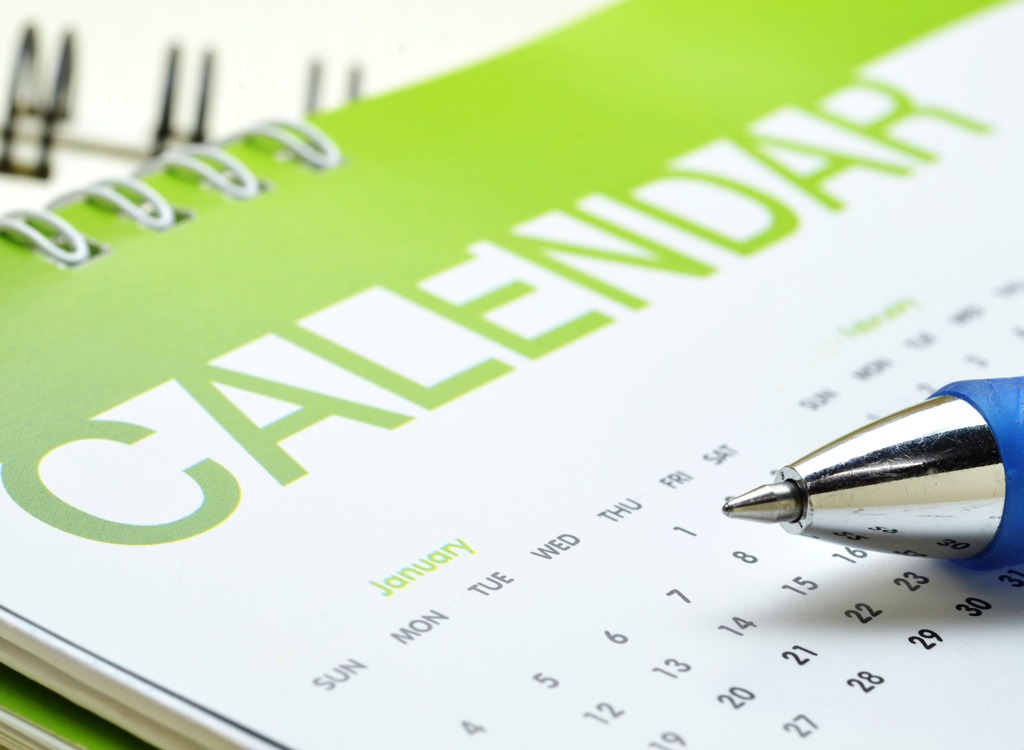
Having a strategy is a crucial part of a cheat meal and it’s a good idea to line up that cheat meal on a weekend or social occasion. “By planning your cheat meal, you know what you’ll be eating and can cut a few extra calories earlier in the day,” says Jim White, RD, ACSM Health Fitness Specialist. This also allows you to really pick a favorite food instead of wasting calories on something you didn’t enjoy.” Amy Shapiro, MS, RD, CDN gives similar advice. “Pick your poison. If you’re going out, pick your splurge. Are you going to dig into carbs like a bread basket or pasta — or dessert? Or are you planning on tossing back a few cocktails?” She urges cheaters to avoid consuming all three of those common categories at once sitting. “Focus only on one,” she says, adding that by saving the others for another time you can “enjoy without going overboard.” Avoid these 20 Worst Carb Habits of All Time whenever possible!
Get Psyched!

If you’re looking forward to your cheating moment and feeling guilty, stop! You’ve earned this. “I like to call them ‘treat’ [meals] because you deserve it after working so hard all week,” says Anna Kaiser, celebrity trainer and founder of AKT InMotion. “It will also rev up your metabolism, and you’ll be motivated to work out harder before and afterwards.”
Create a Calorie Buffer

You can minimize the damage of a cheat meal the day of your feast by “banking” a bulk of your daily calories, primarily those from carbs and fats. There are a couple of ways to do this effectively: If possible, fast before the meal. In other words, if you’re cheating at dinner time, move your first meal to later in the day (lunchtime). Reducing the number of hours you’ll be eating not only saves you calories, but also shifts your body into a “fat burning” state. Check out these 55 Best-Ever Ways to Boost Your Metabolism for more fire-it-up metabolic energizers.
Go Beast-Mode Before Feast-Mode

Another trick to minimize fat gains from your cheat meal is to deplete your glycogen stores—the sugar in your system that your body burns up for energy. Why does it work? The body won’t store carbohydrate as body fat until its glycogen reserves are full, so the emptier your tank, the more room you have for, say, spaghetti, before it ends up on your thighs. How do you do it? Hit the gym before your cheat meal (ideally before you eat anything that day). High-rep circuit style workouts are the best depletion workouts. Even 20 minutes can make a dent. Want an extra boost? Have a cup of black coffee before your sweat-sesh. Studies show caffeine can increase fat metabolism when taken as a pre-workout supplement.
Plot Your Pre-Cheat Meal
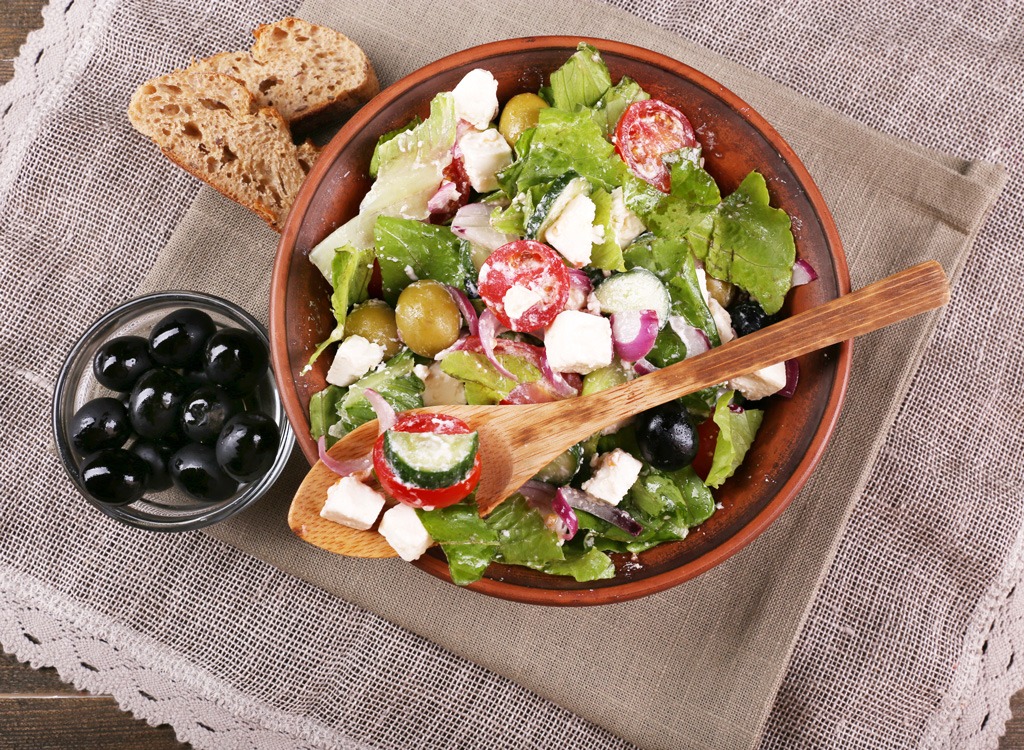
Make sure you eat one high-quality, high-protein meal before your cheat, preferably with high-fiber, low-starch veggies to slow down digestion. A big green salad with simple grilled chicken breast and a squeeze of lemon, for example, would be an ideal pre-cheat meal because it maximizes satiety for the lowest amount of calories. You won’t be starving when it’s time to feast, and you’ll still have your entire daily “allowance” of carbohydrates and fats in the bank. (If you’re looking for a gentle plan for saving up those calories, try our one day detox.)
Don’t Cheat When You’re Famished
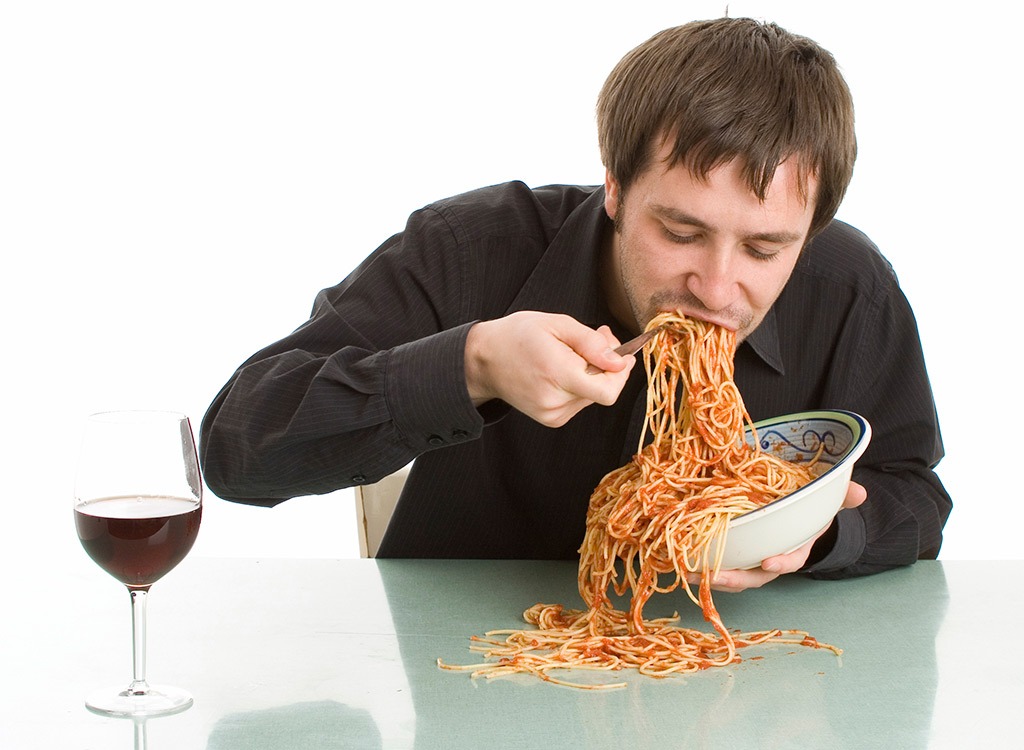
Some people pre-game a cheat meal by punishing themselves on the treadmill and severely restricting calories for several days in advance. They’re probably the same folks who sleep with the heat off and live by candlelight in order to save for a vacation. While creating a “calorie buffer” can be a smart cheat-meal strategy, overcompensating for a feast by “saving” calories for days in advance can backfire in two ways: 1.) You’re more likely to overeat if you come to the table deprived and 2.) Your body’s metabolism may have dropped (very likely if you’re eating under 1,000 calories each day) and it will hang onto your cheat meal as fat as a survival strategy.
When You Cheat
Get a Table, Not a Booth

Resist the urge to grab a stool at the bar and chow down while you watch the game. Research shows that people who eat while watching television eat an average 10 percent more in one sitting than they would otherwise. Not only that, “distracted eaters” go on to eat up to 25 percent more total calories over the course of the day. You can savor every bite and save hundreds of calories, just by indulging in the dining room instead of the booths at the bar. Did you know plus-size restaurant furniture is actually one of the 20 Reasons It’s Harder Than Ever to Lose Weight?
Take Your Own Order
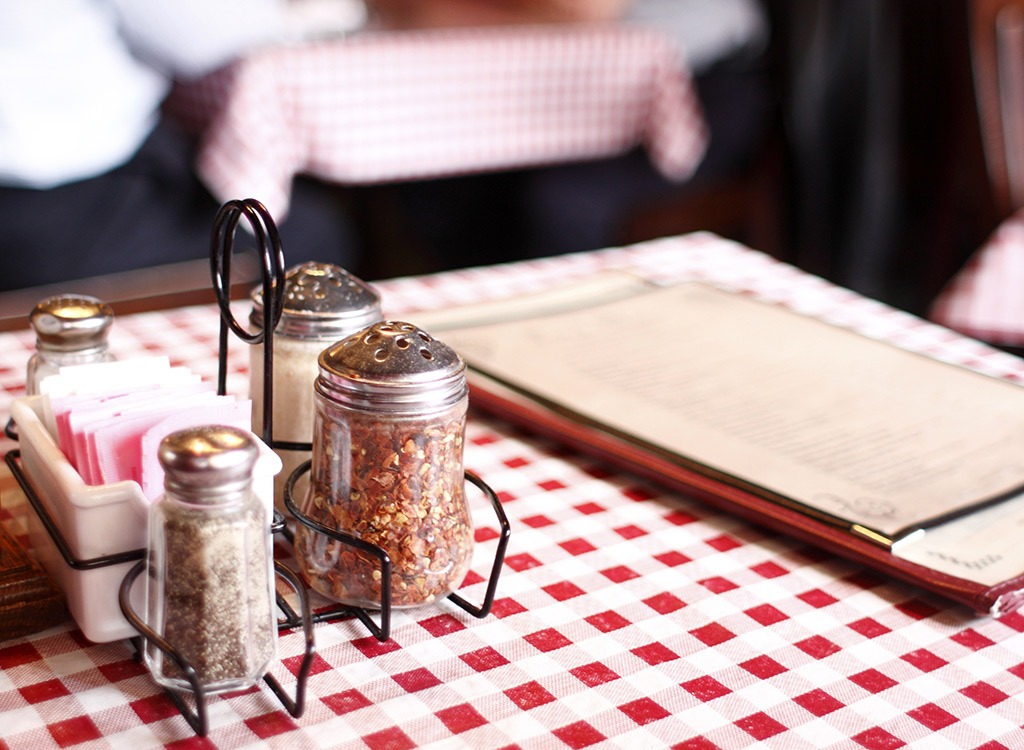
It’s easy to be overwhelmed by temptations on the menu. Studies show that when people are presented with multiple food options, they eat more. Try to mentally limit the food choices you’re allowed in advance of your cheat meal by focusing on the options you absolutely love and crave. Choose a restaurant with a menu over a buffet and, if possible, peruse the options in advance. Head to your restaurant with a game plan: Have a good idea of what you’re going to order before the waiter arrives at your table. Stick to what you know you’ll enjoy most, and skip the rest.
Order the BEST Type of Cheat Meal
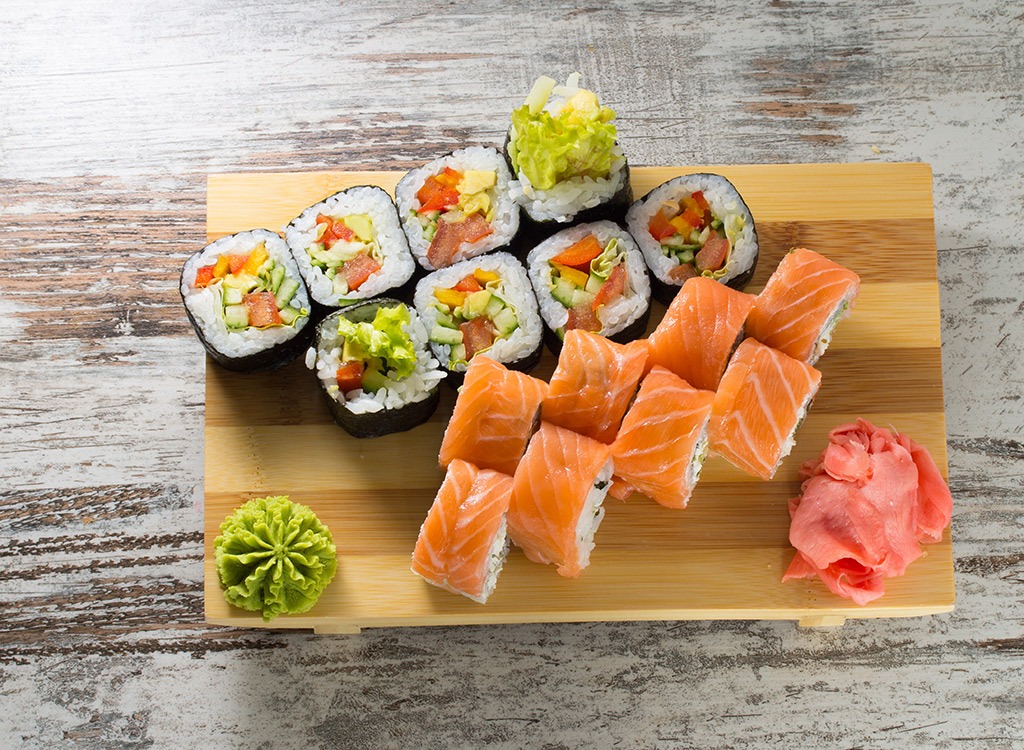
Some cheat meals are better than others. And a high-carbohydrate, moderate-protein meal, however “naughty,” can help you stay on track with your weight loss diet. Why? Carbohydrates have the greatest influence on leptin levels, which help you burn fat and feel satisfied. And protein has the greatest influence on satiety due to its influence on appetite-regulating hormones and high thermic effect—the process of digesting protein requires more energy of your body than any other macronutrient. Need an example? How about a few rolls of sushi? Steak and a potato? Pancakes and an egg white omelet? Spaghetti and meatballs? The options are virtually unlimited, so long as you …
Avoid the WORST Type of Cheat Meal
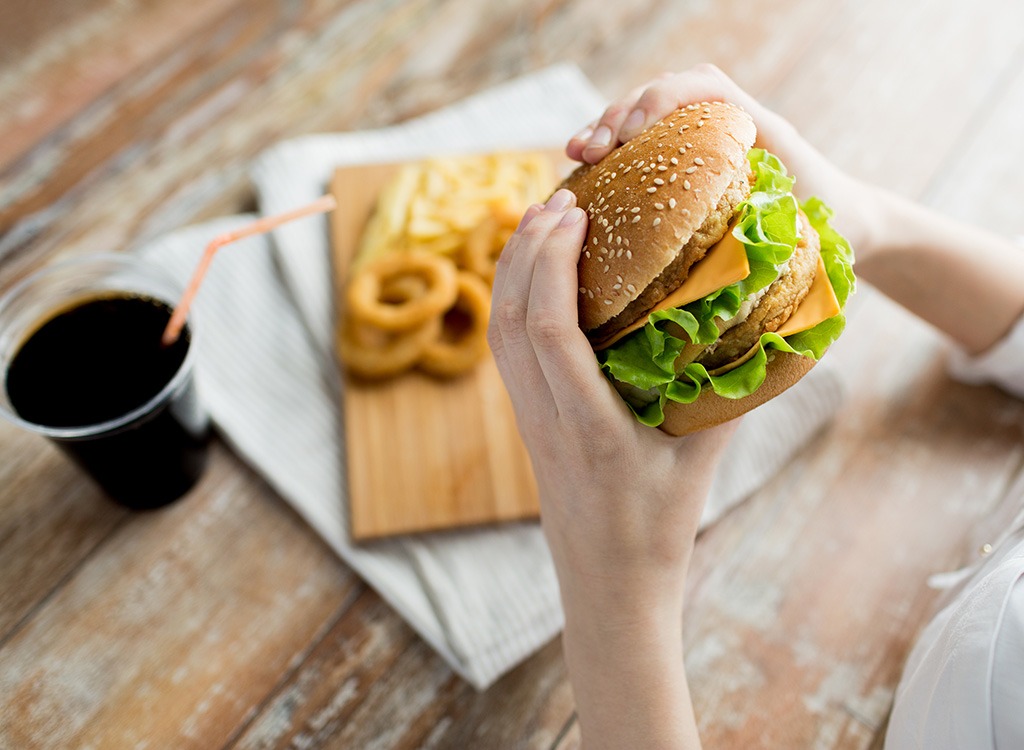
A high fat meal causes more immediate fat storage than a high-carb meal. The reason? Dietary fat is stored as body fat more efficiently than carbohydrate or protein. For your body to turn a carbohydrate molecule into a very-different fat molecule, it has to use a chemical process that in itself burns energy (about 25 percent per gram of carbohydrate). On the other hand, dietary fat is chemically similar to body fat and requires hardly any energy for conversion. Moreover, fat isn’t very effective at increasing leptin levels, so you miss out on the temporary metabolism boost. Avoid menu options that are particularly high in fat, like creamy pasta dishes, greasy pizza, battered or tempura foods and, unfortunately, most desserts. Cheat at your own risk!
Set a Time Restraint
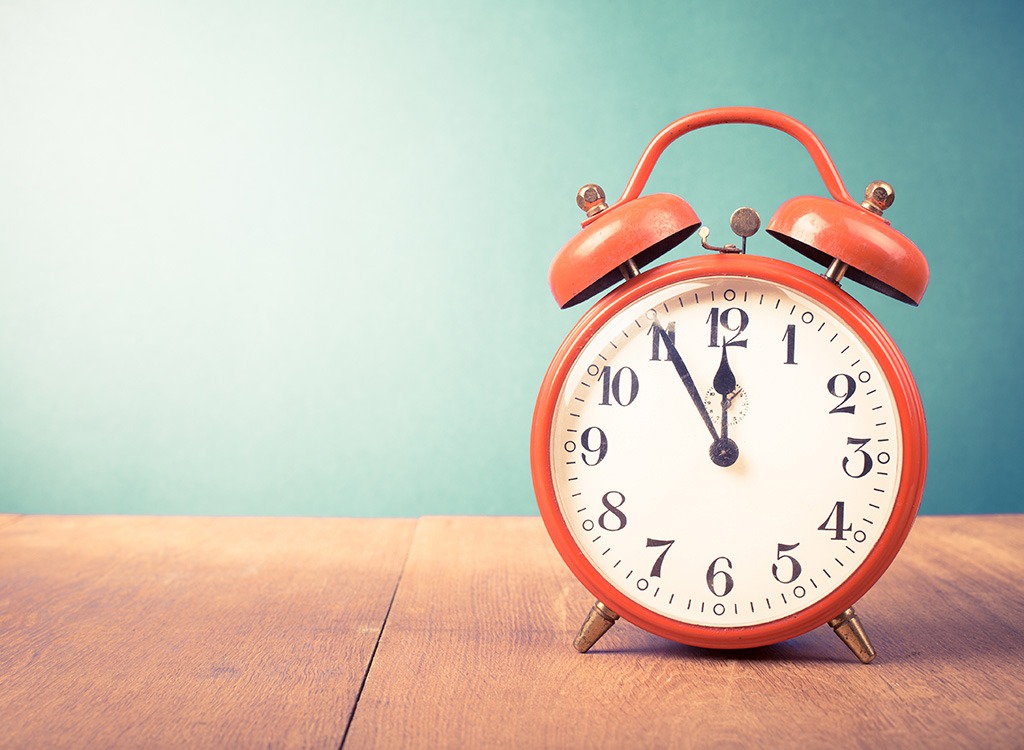
You already know it’s a meal, not a day, but limiting your time at the table might be a necessary move for some people. The cheat meal is an opportunity to eat what you like, not a mandate to eat what you can for as long as you can. You’ll want to eat slowly and savor your indulgence, but this is not an excuse to periodically chow down on an entire pizza during the entire two hours of a movie you just On Demanded. (And for goodness sake, don’t drink soda, even during a cheat meal!)
And Don’t Forget Portion Control

Shapiro advocates portion control—yes, even when cheating. Her best advice is to order a half-portion of that thing you love. “Restaurant portions are way too big, so even when we plan on indulging we end up going overboard,” she says. “I always recommend my clients ask for appetizer-size portions of items such as pasta, and many restaurants will oblige. It’s more than enough to quench your craving without blowing your diet.” Check out The Worst Option on the Menu at 20 Popular Restaurants so you know what to avoid even when you’re letting lose.
Hydrate Like Crazy
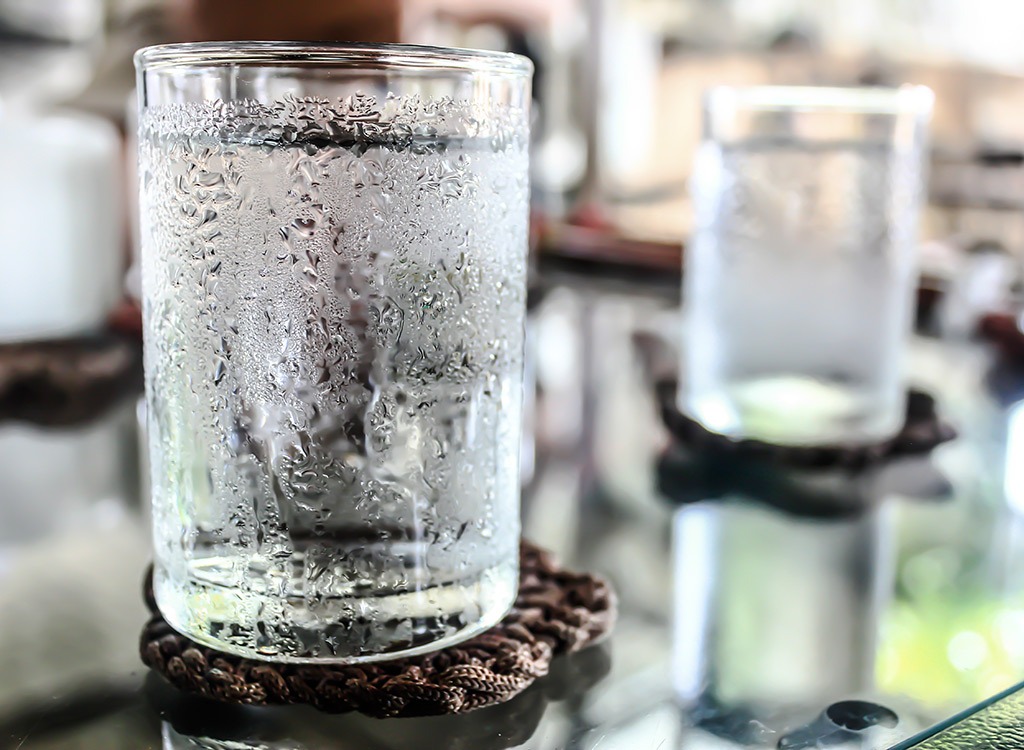
Restaurant meals tend to be high in sodium, which throws off antidiuretic hormones—chemicals that control how much you urinate—and can leave you feeling dehydrated and bloated. Start replenishing your body while you indulge with a few large glasses of water. Ask the waiter for a few lemon wedges, too. Citrus fruits are rich in the antioxidant de-limonene, a powerful compound found in the peel that stimulates liver enzymes to help flush toxins from the body and gives sluggish bowels a kick, according to the World Health Organization. Drink a few glasses with your meal, before you hit the sack and when you wake up the next day. (And if you want to kickstart your jump back on the healthy eating train, try adding in a couple of the best teas for weight loss).
Take Your Time
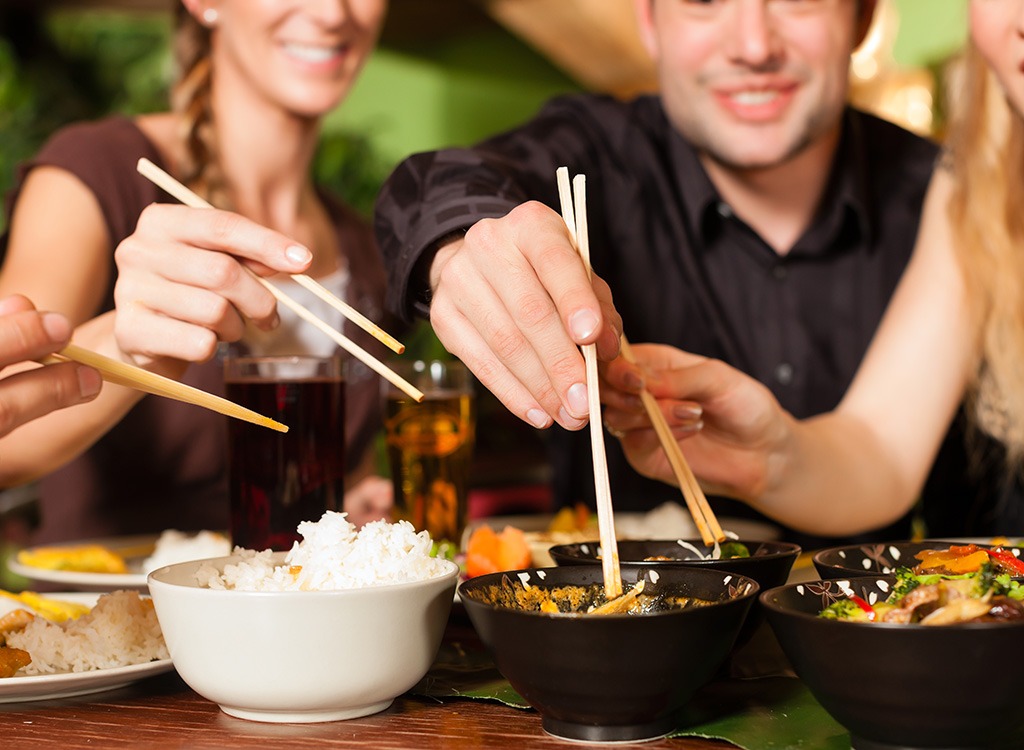
Savor and enjoy. You’ve been looking forward to this all week, so appreciate the taste of your favorite foods and extend the fun. White adds that by slowing your roll, you’ll recognize when you’re full. That’ll help prevent overeating.
After You Cheat
Hold Yourself Accountable
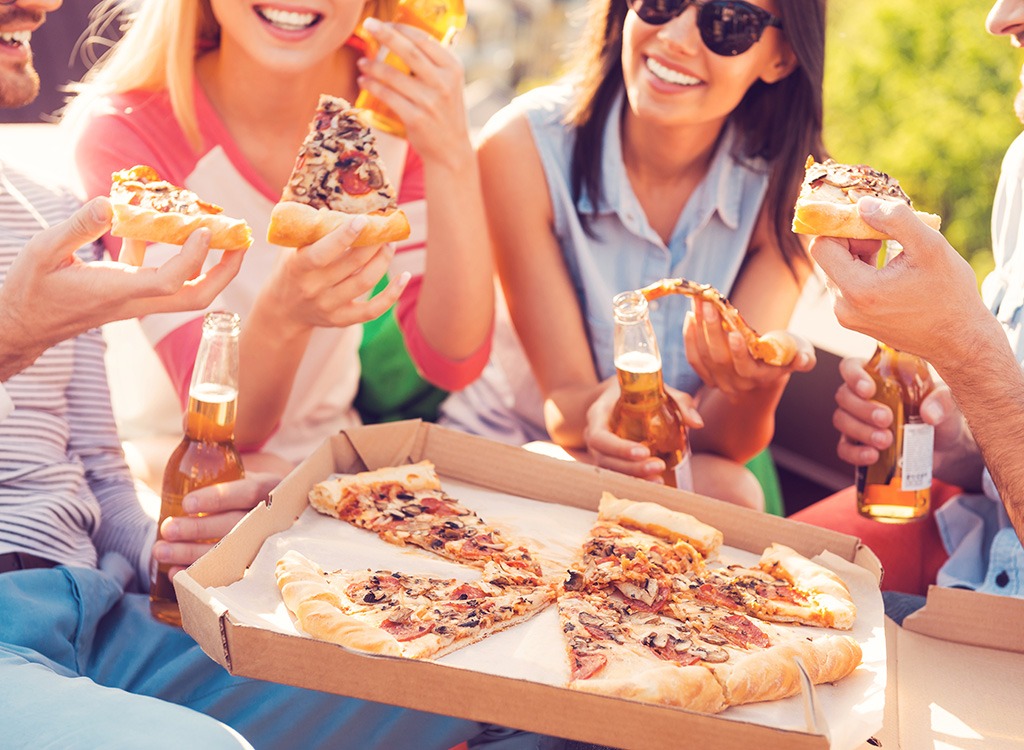
So you’ve had your cheat meal—and then your friends call to say they’re going out for burgers and beers and you gotta come! Go, by all means, but don’t let your weekend slip through your fingers and then blame your friends for it. If you’ve had your cheat meal already, deal with it and order the grilled chicken. Because, listen: A solid diet and exercise program will help you lose 1 to 2 pounds per week—a deficit of about 3,500 to 7,000 calories. Consider the average sit-down restaurant meal serves up 1,200 calories, and it’s easy to see how cheating too big or too frequently can undo your weight loss efforts in a matter of hours. If you’re serious about losing weight, limit yourself to one cheat meal per week. And then stop until next week, even if you feel a little left out.
Get Back on Track

“Everyone is entitled to a cheat meal, but no one is entitled to a cheat week—not even on your birthday,” says Shapiro. “Don’t think, ‘I just ruined my diet, so I’m going to keep eating whatever I want.'” Enjoy your meal and resume your healthy plan ASAP. “This will keep you moving in the right direction and won’t allow for any permanent setbacks,” she says. White also recommends purging the fridge of leftovers to keep temptation out of your reach and only keeping healthy snack ides around.
Bring Back the Beast

Now that you’ve indulged, it’s time to reset like the workout boss you are! “When I have a cheat meal, I know that I’ve consumed a lot of calories, and I want to burn them off,” says Rebecca Kennedy, creator of A.C.C.E.S.S., Nike Elevated Trainer, and Barry’s Bootcamp Master Trainer. “So I might want to go heavier metabolically—like going for a high-intensity workout, lift heavier, or throw in some extra plyos to continue to burn calories after I’ve stopped.”
Bonus Cheat Meal Tips
Experiment If Need Be

This tip might seem like the most counterintuitive of all. If you’ve had three or four lackluster workouts in a row, it may be that your body is glycogen depleted or in need of other nutrients. Cheat a bit and see what happens. You might find that a plate of fettuccine alfredo will improve your morale and get you back in your groove. Just don’t treat every gym plateau with poutine. It’s much healthier to try listening to a new Spotify playlist first.
Give It A Name You Love

Different phrases mean different things to people, so go ahead and customize your so-called cheat meal so it’s more like a motivating mantra. Just like a nurse who works nights might call Wednesday-Thursday her “weekend,” you can call your moment of indulgence whatever you like and whatever makes you most comfortable, mentally. “I never call them a cheat day,” says Ashley Borden, fitness and lifestyle consultant. “I like to call them an ‘off day.’ Having ‘off’ days gives your brain a reprieve to not be so hyper focused on food 24/7.” Angelilli reveals he doesn’t adore the “cheat” phrase, either: “I don’t love the word ‘cheat’ because we have this guilt culture,” he says. “Sometimes you’re better off eating the ice cream and feeling good about it than feeling bad about it for a few days. Feeling bad about it is toxic to your system.”








